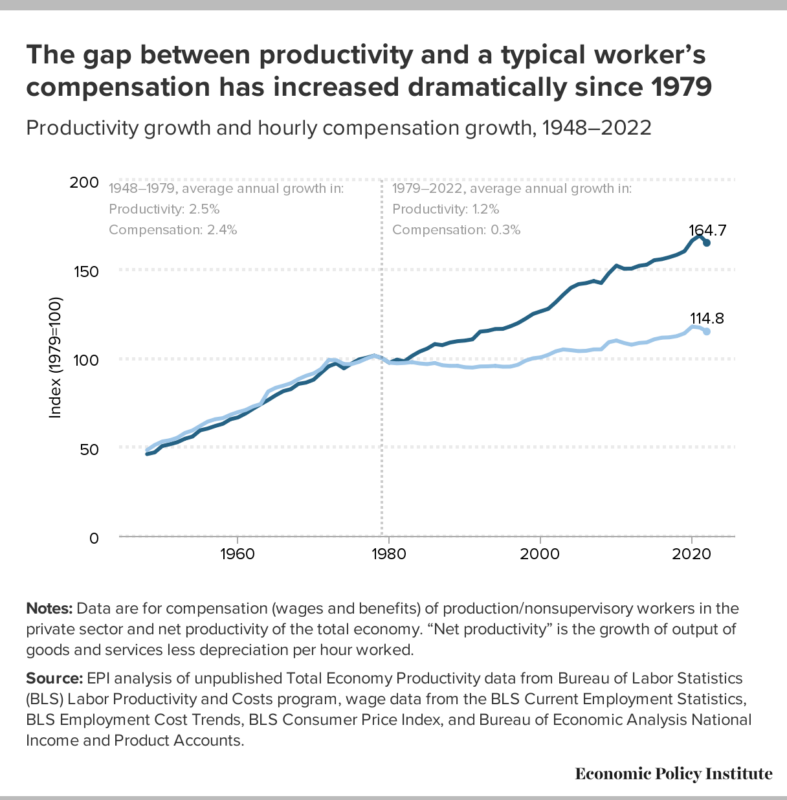Sign up for daily news updates from CleanTechnica on email. Or follow us on Google News!
Sam Altman, known for OpenAI (the people behind ChatGPT), works with another non-profit that focuses on research. You’re never going to guess what the organization is called! (Yes, it’s OpenResearch.) Recently, the entity released the largest study to-date testing the concept of Universal Basic Income (UBI). In a nutshell, UBI is the idea that everyone should get enough money every month to cover their most basic needs, regardless of work done, other income, or any other factor. Many proposals set this at about $1,000 per month.
This idea has gotten a lot more attention in recent years because people are worried about the effects of automation, which is something Sam Altman and OpenAI have been working on improving. If robots do enough work and put enough people out of a job, society could come unraveled, as the owners of the machines would make all of the money and large numbers of people could be left permanently destitute. Anyone who studies history knows that when too many people find themselves in such a desperate situation, violent revolution is almost always the result.
But as you’d expect, the idea of giving people money without making them work for it is controversial. There are the obvious cries of communism and socialism, people claiming that those receiving money will not work and sit around doing drugs, etc. But, there are more open-minded skeptics who simply wanted to see how this works in the real world. For that reason, there have been many studies and pilot projects to determine whether society improves or we all sit around and do drugs until civilization collapses.
Unlike most studies so far, this OpenResearch study was huge in terms of both time and number of participants. 1000 people were given $1,000 per month, while another 2000 people were given only $50 to serve as a control group. This went on for a full three years, so we can be a little more sure about whether the results were temporary or long-lasting.
Sadly, though, the results aren’t clear-cut.
The reporting on the study seems like it tells us more about the writers than the study. Because the results weren’t clearly in favor of anybody’s position on UBI, nobody could say that the results were legitimately utopian, dystopian, or even favorable or unfavorable. People with a Puritan work ethic were quick to point out that people worked less, even if just a little (1.3 hours per week). Supporters of UBI pointed to the fact that most of the reduced work was concentrated among young single parents, raising the question over whether a little less work was a success after all.
This leaves us in a position where it’s difficult to pass an economic response to automation, while automation still marches on. That should concern everyone.
The Problem With Connecting Automation & UBI
One piece at Vox that caught my attention pointed out that there’s no good reason to use automation fears as a vehicle for spreading the word about UBI. This ends up hinging the hopes for what is probably a superior poverty reduction program on the uncertain outcomes of AI technology. We could easily run into another AI winter, where progress stops for years. Or, we could see it succeed but not destroy a bunch of jobs because people switch from putting lids on toothpaste to fixing the machine that puts lids on toothpaste (metaphorically speaking). We simply don’t know yet.
But we shouldn’t assume that UBI is the only or the best answer to the possibility that automation will radically accelerate inequality. To make heads or tails of any of this, we need to take a deeper look at the problem of wealth inequality.
Understanding The Deeper Problems Of Wealth Inequality
Wealth inequality is not a future problem that would emerge with more automation. It’s been getting worse for decades with today’s technology. An elderly person today will remember extreme poverty in their youth (the Great Depression), followed by a time when many in the middle class had a home and two cars on only one parent’s income. Now, we’re in a time when in many households both parents work but can’t afford to buy a house. Many people grind harder and harder every year only to struggle more and more. The technological benefits are already not resulting in a better standard of living.
This is a problem that has been studied, and it’s not just something lazy people say to excuse their lack of work and over-enthusiasm for Starbucks. While the productivity of non-supervisory workers has gone up, inflation-adjusted wages have stopped going up.
 Image by the Economic Policy Institute.
Image by the Economic Policy Institute.
Why did this change in the 1980s? The simple answer is that government policies trying to keep worker pay rising with profit went away. I’m not going to dive deeper into that because I abhor partisan politics, but it doesn’t take much research to figure out who came to power in those years. To be fair, you can also see the effects of “stagflation” that happened under the guy who came before him (and this made for the perfect excuse to end pro-labor policies).
But, remember that this is only the wage vs productivity chart for line workers. If you consider all workers, the pay matches up with productivity. So, this naturally means that the top 20% or so of workers (including management) are taking all of the gains while the rest of the population gets to slowly lose out on the American Dream (the Consumer Price Index used to calculate real wages doesn’t really cover the reality on the ground, and wealthy people can insulate themselves from inflation through investment in inflation-resistant assets).
How does the top 20% — let’s be real, it’s mostly the top 1% — keep voters from putting things back and getting a fair cut of increased wealth? Rent-seeking behavior. A portion of the stolen gains gets “invested” in politics to buy special favors from the political class. The political class then turns around and “invests” in their donors with policies that benefit the wealthy.
No Simple Solutions
This is an incredibly difficult problem to unseat. As you can see, simply electing a different party doesn’t stop this, as both major parties have been in power since the 1980s and we’ve seen little change on the graph in that time. After all, the management of major corporations tend to donate to both political parties and aren’t going to be stabbed in the back by enough of them to matter.
When corporate media, social media, and the education system all teach about the benefits of this corrupted brand of free market economics and even religion often teaches us that wealth is a sign that God favors a person (prosperity gospel), it’s difficult to get a critical mass of voters to stop the bleeding. Instead, we’re all encouraged to spend what little money we might have on material goods to make sure people think we’re not lazy or disfavored by the divine while hoping to become one of the exploiters one day.
Universal Basic Income would certainly help increase income and put a dent in the problem, but it would be more of a band-aid at this point. Most of the $1,000 people receive would end up in the hands of the same corporate entities by the end of the month, and the least ethical of them would raise prices because they know people could afford to pay a little more. They’d then blame inflation as if the price hikes were a natural consequence of people having money and not simple greed and exploitation.
This Is Terrible For The Environment
When everyone is scrambling to look wealthy and grinding themselves to death, often literally, to achieve that goal, the end result is a lot of extra emissions. Bigger houses need more energy to heat and cool. Bigger vehicles emit more carbon dioxide and pollution. When the rent-seekers buy government benefits and subsidies, they often increase their pollution far more than the average worker who they’re charging for their conspicuous consumption.
So, it’s not just wealth inequality, but pollution that takes off. Throwing an extra $1000 per month to people so they can more easily afford conspicuous consumption doesn’t really solve the environmental problem at all.
Human health and well-being is also seriously harmed. When people work harder and harder to not have any better life quality, rates of depression, obesity, and everything else naturally go up.
My Answer To This: Not Playing The Game
Instead of falling for the political theater that doesn’t change anything or trying to grind even harder and pollute more just to have the appearance of being in the rent-seeker class, we have to figure out ways to actually make a difference. But, it’s hard to use old school labor tactics like unionization and strikes against a system that isn’t directly employing or exploiting us all.
Instead of asking to have a $1000 bandaid placed on this sucking wound, we instead need to stop participating in the things that fund the rent-seekers and their partners in the political class. We can’t reach for the mop before we shut the faucet off, in other words. If enough people stop supporting the rent-seekers with their artificially cheap labor and spending, they’d lose their grip on government and the cycle of theft would stop.
My proposed answer is to find ways to exit the system, even if only partially. When individual households cut back on their carbon emissions, it might not be the whole answer to climate change, but it does keep a few bucks out of the pockets of the companies and politicians involved in this corruption. That’s probably why we’ve even seen people supposedly on the left say it’s a waste to reduce consumption at the household level. It’s the only lever many people can pull that hurts them!
At the more extreme level, you could sell your house and live off-grid somewhere or in an RV, consuming minimally and enjoying more free time, but not everyone can do that for various reasons. But, that doesn’t mean we can’t all do small things like use less power from the grid, stop buying gasoline, ride bikes, and otherwise starve the beast.
Featured image by Jennifer Sensiba.
Have a tip for CleanTechnica? Want to advertise? Want to suggest a guest for our CleanTech Talk podcast? Contact us here.
Latest CleanTechnica.TV Videos
CleanTechnica uses affiliate links. See our policy here.
CleanTechnica’s Comment Policy






